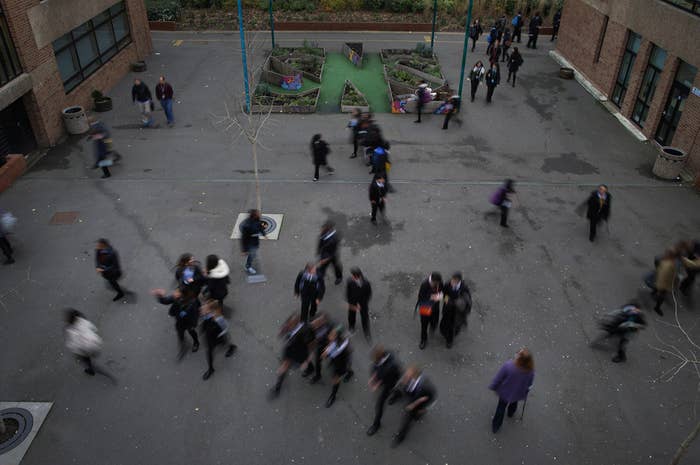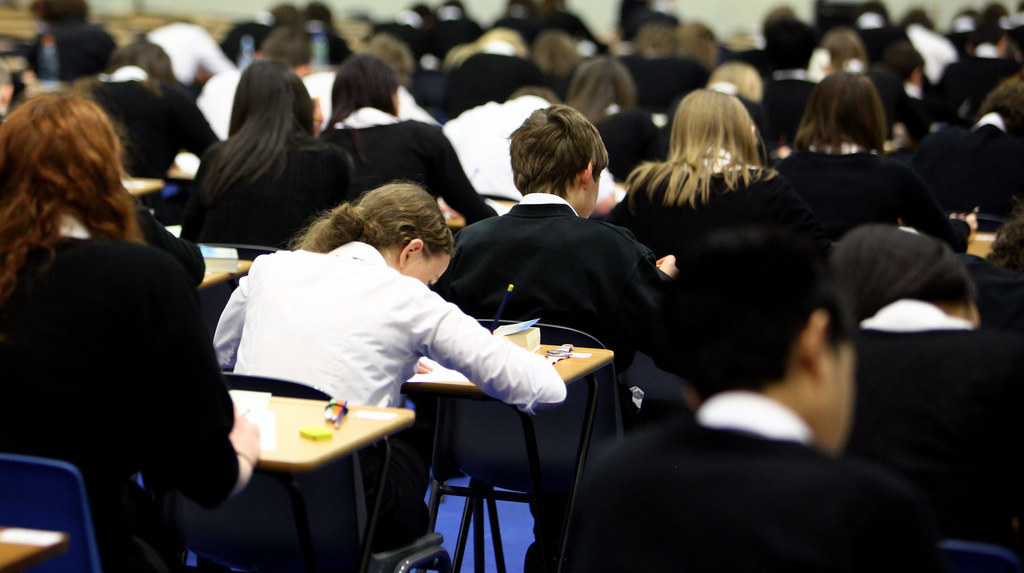A primary school student in Lancashire was questioned by police after he mistakenly wrote he lived in a "terrorist house" instead of a "terraced" one in a school assignment.

UPDATE [Jan 21, 2016, 5.30pm]
Lancashire police and Lancashire county council told BuzzFeed News they have written a letter of complaint to the BBC, who first reported it, over its handling of the story.
The organisations said the 10-year-old pupil was not interviewed solely because of the spelling error in his homework but because of additional concerns over his safety.
No further action was taken.
Lancashire police made clear that it was not dealt with as a terror-related incident. A council spokesperson told BuzzFeed News that it was not a Channel case – the Government's de-radicalisation programme which requires schools and colleges to report incidents of concern.
Lancashire's Police and Crime Commissioner, Clive Grunshaw, said: "The facts are that a young person disclosed a worrying issue in his school work – not just that he lived in a 'terrorist house' – and this was reported through the appropriate channels and subsequently a visit was undertaken by a neighbourhood police officer and a social worker.
"This was not responded to as a terror incident and the reporter was fully aware of this before she wrote her story.
"In the event there was no further action needed, but if the school and police had not acted then they would have been failing in their duty to respond to concerns."
Grunshaw said he feared the BBC had created an unnecessary situation that could damage "community relations and confidence".
The BBC has since amended its original report.
Though the family say they did not have to go for further questioning, his cousin called the incident a "joke", adding that the boy was now "scared of writing, scared of using his imagination".
"You can imagine it happening to a 30-year-old man, but not to a young child," his cousin said.
In order to protect the boy's identity, the BBC has not named any member of the family.
In a statement, Lancashire police said: "This was reported to the police but was dealt with by a joint visit by a PC from the division and social services, not by anyone from [the government's counter-terrorism programme] Prevent."
The school in question has not commented on the case, and told the BBC that an investigation into a complaint over the incident was ongoing.
Since August last year, public sector workers including teachers are legally obligated to report any activity that suggests young people could become radicalised.

Under the Prevent duty, which became statutory last year, schools and colleges are required to report any signs of radical extremism to the government's official de-radicalisation programme, known as Channel.
Last October, a freedom of information request revealed 1,355 people under the age of 18 were referred to the programme, including a 14-year-old boy who talked about "eco-terrorism" in a French lesson.
Channel forms one part of the government's Prevent strategy, which is designed to stop people becoming violent or non-violent extremists.
Although the government says the strategy is essential in light of over 500 young Britons having left the UK to fight in Syria, critics of Prevent argue it is too heavy-handed, and unfairly demonises people who hold contrarian views.
This week, the government launched a new website to tackle radicalisation in schools, which includes resources that make it easier to report incidents to Prevent.
